5 Key Updates from the Trial of Derek Chauvin
George Floyd's brother broke down during his testimony saying, "He showed us how to treat our mom."
![Former Minneapolis police officer Derek Chauvin poses for a mugshot after being charged in the death of George Floyd. [via Getty Images]](http://investigationdiscovery.sndimg.com/content/dam/images/investigationdiscovery/crimefeed/legacy/2021/04/getty-derek-chauvin-trial-1216590242.png.rend.hgtvcom.616.462.suffix/1617909350348.png)
Former Minneapolis police officer Derek Chauvin poses for a mugshot after being charged in the death of George Floyd. [via Getty Images]
At the start of the third week of the trial, George Floyd's brother Philonise Floyd broke down during his testimony about George saying, "He showed us how to treat our mom."
Former Minneapolis police officer Derek Chauvin is charged with second-degree unintentional murder, third-degree murder and second-degree manslaughter in the death of George Floyd.
Three other officers — Thomas Lane, J. Alexander Kueng and Tou Thao — are charged with aiding and abetting second-degree murder and manslaughter. The other officers' trial is scheduled for August.
Here's what we know about the trial so far:
Cardiologist says George Floyd was restrained in a "life-threatening manner."
Dr. Jonathan Rich, a cardiologist who testified that George Floyd died from low oxygen levels, said he ruled out a heart attack or drug overdose as possible causes of death. Rich stated in his analysis that Floyd did not suffer from heart disease at the time of his death.
Rich testified that Derek Chauvin restrained George Floyd in a "life-threatening manner" induced by prone restraint and positional asphyxia, contrary to the Hennepin County Medical Examiner's Office's report. The autopsy report from the official medical examiner report concludes the cause of death was "cardiopulmonary arrest complicating law enforcement subdual, restraint, and neck compression."
Chief medical examiner for Hennepin County says he still classifies Floyd's death as a homicide.
Dr. Andrew Baker, the chief medical examiner who conducted Floyd's autopsy, restated his finding that Floyd's death was a homicide and identified the cause as "cardiopulmonary arrest" that occurred during "law enforcement subdual, restraint, and neck compression".
Baker testified that Floyd's existing and underlying heart disease and use of fentanyl were contributing causes of his death, but not the direct cause. Baker added that due to Floyd's hypertensive heart disease, the neck restraint and compression "was "just more than Mr. Floyd could take by virtue of those heart conditions."
A medical expert testified that Floyd showed signs of brain injury minutes before Chauvin relented.
Chauvin's knee remained on Floyd's neck for 3 minutes after his oxygen reached zero, resulting in brain damage, according to pulmonary care expert Dr. Martin Tobin. Tobin testified, "A healthy person subjected to what Mr. Floyd was subjected to, would have died as a result of what he was subjected to."
Video evidence shows Chauvin kept his knee on George Floyd’s neck for at least 9 minutes — longer than the 8:46 that was widely reported. Tobin also testified that fentanyl did not affect the respiratory centers in George Floyd, contradicting the defense's argument.
Minneapolis Police Chief Medaria Arradondo testified against Chauvin, saying he violated policies around de-escalation.
The "blue wall of silence" has fallen around former Minneapolis police officer Derek Chauvin. Multiple police officers have testified against Chauvin during the trial, and condemned his restraint tactics. "To continue to apply that level of force to a person proned out, handcuffed behind their back, that in no way, shape or form is anything that is by policy," Chief Medaria Arradondo said.
"It is not part of our training, and it is certainly not part of our ethics or values." The chief also said that kneeling on George Floyd's neck is not a trained tactic and was a violation of the force's policies around de-escalation.
Bystanders described what they witnessed in the fatal arrest.
Eyewitness Charles McMillian, 61, began crying in court as the video of Floyd saying "Mama, Mama!" and "I can't breathe" was played. McMillian could be seen on video from May 25th confronting Chauvin after Floyd was taken away in an ambulance. "When the paramedics arrived for Mr. Floyd, I knew then in my mind and in my instinct, it was over for Mr. Floyd. That he was dead," McMillian recalled.
Genevieve Hansen, an off-duty Minneapolis firefighter, is overheard in bystander video urging officers to check Floyd's pulse and give him medical attention. In a distressed 911 call from the scene, Hansen said she "literally watched police officers not take a pulse and not do anything to save a man."
Another witness Darnella Frazier, was 17 years old when she recorded George Floyd's death and posted the viral video to Facebook. Frazier, now 18, told the prosecutor she sometimes lies awake at night "apologizing and apologizing to George Floyd for not doing more and not physically interacting and not saving his life." Referencing Chauvin, she said he "deserves to go down."
This trial may be extremely difficult and traumatizing to watch, but you are not alone. These resources may help:
- The Anxiety and Depression Association of America — 1-240-485-1001
- The National Alliance on Mental Illness — 1-800-950-NAMI (6264)
- The Suicide Prevention Lifeline —1-800-273-8255
- The Association of Black Psychologists — 1-301-449-3082
Find more resources and organizations to support here.


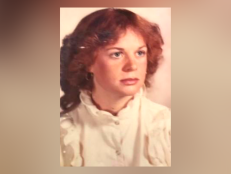

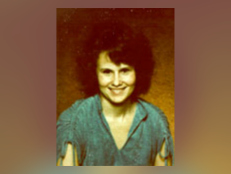
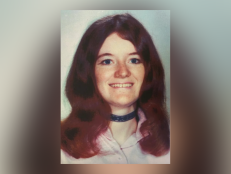
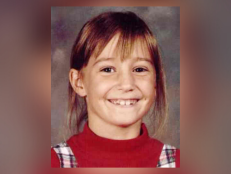
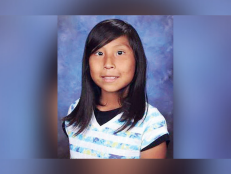
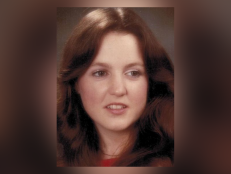
![David Dwayne Anderson (left) and Sylvia Quayle (right) [via the Cherry Hills Village, Colorado Police Department]](http://investigationdiscovery.sndimg.com/content/dam/images/investigationdiscovery/crimefeed/legacy/2021/04/sylvia-quayle-david-dwayne-anderson-040921.png.rend.hgtvcom.231.174.suffix/1617997281780.png)